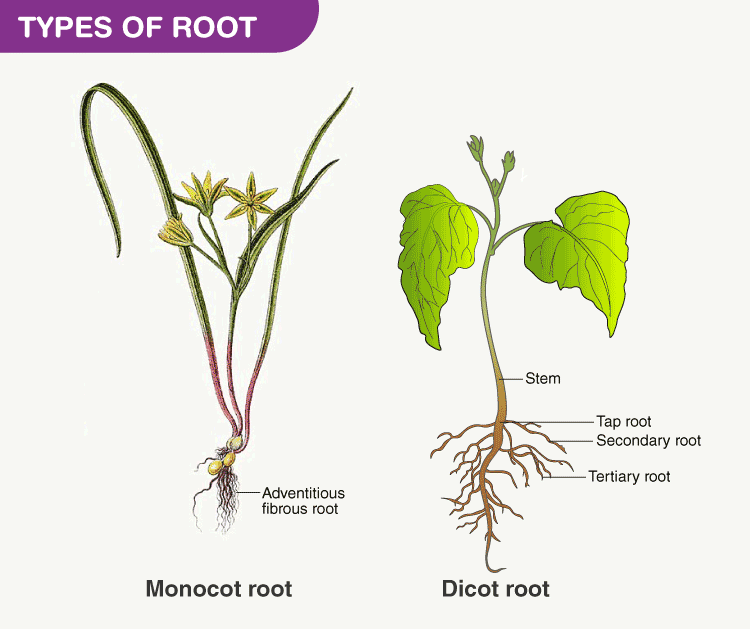The roots of some plants are modified to perform specific functions. For example, the roots of carrot and turnip get swollen to store food.
The two major types of root systems are –
- Tap Roots
- Adventitious or Fibrous Roots
Prop roots and stilt roots are two types of adventitious roots. The structures hanging from the banyan tree are its prop roots. They act as a support to the tree. Likewise, the stems of sugarcane and maize have supporting roots in their lower nodes. These supporting roots are termed stilt roots.

Prop Roots
They are adventitious roots that support the aerial branches. The prop roots are aerial roots that are found above the ground. Example – Roots of banyan and fig. The downward roots give a pillar-like appearance, and are also known as pillar roots.
Stilt Roots
The adventitious roots that develop from the base of stem nodes are called stilt roots. They grow in the downward direction and join the soil substratum. Usually, they provide mechanical support to the weaker stems. They also facilitate faster vertical growth of the stem. Example – Roots of sugarcane and maize.

Also see: Root System
Difference between Prop Roots and Stilt Roots
Prop Roots |
Stilt Roots |
| They are adventitious roots that spread from the branches of a tree and grow in a downward direction. | They are adventitious roots that develop from the base of the stem nodes. |
| They are lengthy compared to the stilt roots. | They are shorter when compared with prop roots. |
| These roots are hygroscopic. They can absorb water from the atmosphere. | The young stilt roots are non-hygroscopic. |
Frequently Asked Questions
What are pneumatophores?
In some plants (especially in the swampy area), the roots come out of the ground and grow vertically upwards. These roots are known as pneumatophores. They help the plant to get oxygen for respiration. Example – Roots of Rhizophora.
What is a tap root system?
They are the main root from which other roots sprout laterally. They are straight, thick structures that grow vertically deeper. These roots are most seen in dicots. The taproots of turnip and carrot are swollen to store food.
Also see: Dicot and Monocot Roots
What is the difference between taproot and fibrous root?
Taproots are single thick structures. They are mostly seen in dicots like carrots and turnips. Whereas, fibrous roots are a network of fine hair-like structures. They are seen in monocots like rice and wheat.
Extended Reading: Differences between Tap Root and Fibrous Root
What is a strangler fig?
Many Ficus of the tropical forest shows a ‘strangling growth’. This growth is also seen in some banyans and vines. The roots of these trees grow downwards around the stem of the host plant. At times, they seem like strangling the host. Thus, they are termed as strangler fig.
Visit BYJU’S Biology for more exciting topics.
Comments